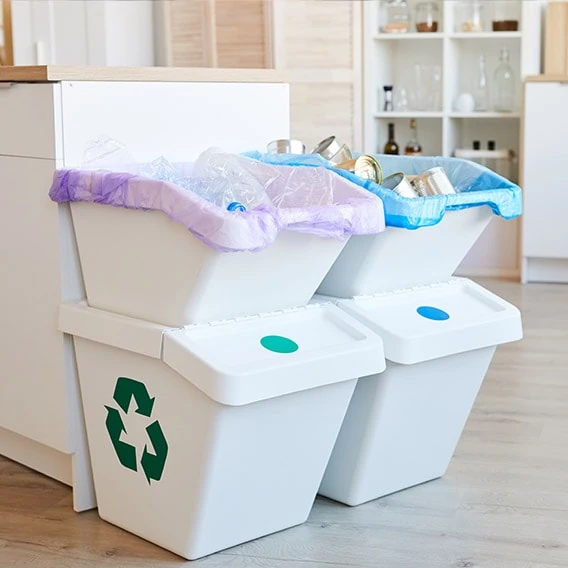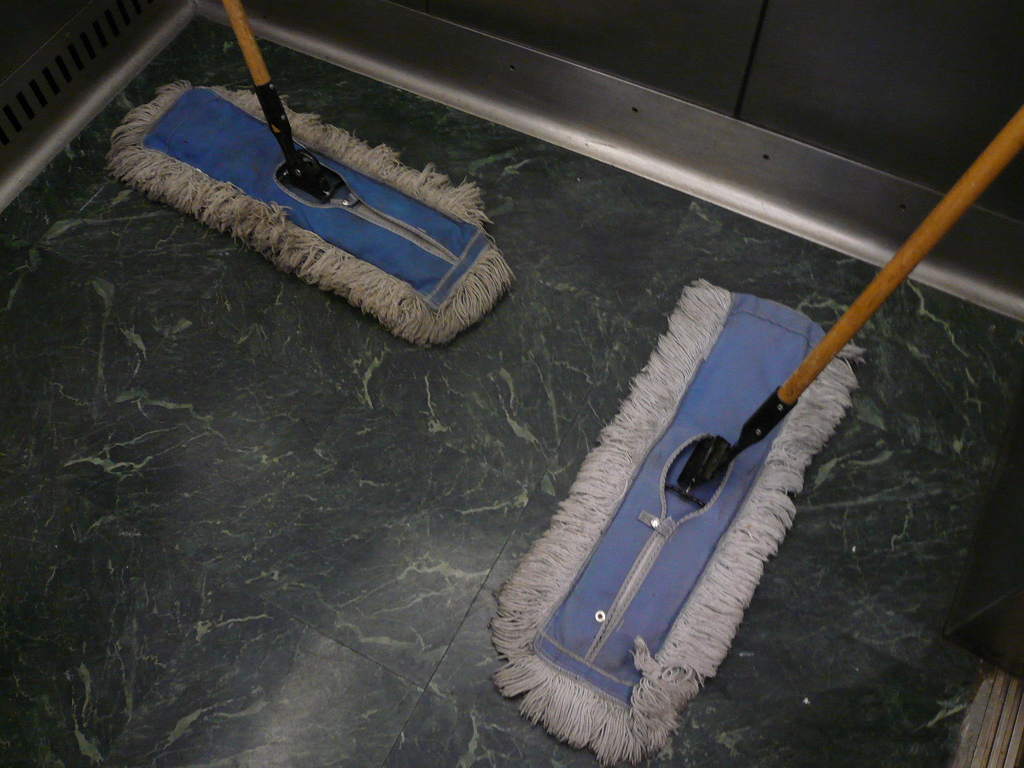Yes, eco-friendly cleaners can really tackle tough messes! They’re made from natural ingredients that effectively break down grime without harsh chemicals. For instance, vinegar and baking soda attack stubborn stains and dirt, while essential oils add antimicrobial properties. You’ll find that these green alternatives can be just as powerful as traditional products. Plus, they’re safer for your family and pets. Curious about how they perform on different surfaces? There’s more to explore!
Understanding Eco-Friendly Cleaners: What Are They Made Of?
When you choose eco-friendly cleaners, you’re opting for products made from natural ingredients that are safer for both your home and the environment.
These cleaners often include plant-based surfactants, essential oils, and biodegradable compounds. You’ll find they effectively tackle dirt and grime without harsh chemicals that can harm your family or pets.
By selecting these products, you’re also supporting sustainable practices that reduce pollution and waste. Many eco-friendly cleaners are free from synthetic fragrances and dyes, making them gentler on sensitive skin and improving indoor air quality.
You’re not just cleaning your space; you’re contributing to a healthier planet. Embracing eco-friendly options reflects your commitment to serving others and the environment, creating a cleaner and safer world for everyone.
The Science of Cleaning: How Eco-Friendly Ingredients Work
Understanding how eco-friendly ingredients work can transform your cleaning routine into a more effective and sustainable practice. These natural components, like vinegar, baking soda, and essential oils, harness their properties to break down dirt and eliminate bacteria without harmful chemicals.
For instance, vinegar’s acidity can dissolve mineral deposits, while baking soda acts as a gentle abrasive, scrubbing away grime without scratching surfaces. Essential oils not only add pleasant scents but also possess antimicrobial properties, enhancing cleanliness.
When you choose these ingredients, you’re not just cleaning your home; you’re also caring for the environment and the health of your loved ones. By understanding their science, you empower yourself to make responsible choices that truly benefit your community.
Comparing Cleaning Power: Eco-Friendly vs. Traditional Products
While traditional cleaning products often promise powerful results, eco-friendly alternatives can surprise you with their effectiveness. You might think that only harsh chemicals can tackle stubborn stains, but many eco-friendly options use natural ingredients that cut through grime just as well.
Ingredients like vinegar and baking soda aren’t only safe for your family but also for the environment. When you choose eco-friendly cleaners, you’re not just making a cleaning decision; you’re serving your community and the planet.
These products often come with fewer allergens and irritants, making your home a safer place for everyone. By embracing eco-friendly options, you’re demonstrating care for both your loved ones and the world around you, proving that cleaning power can align with your values.
Effectiveness on Different Surfaces: Kitchen, Bathroom, and Beyond
As you navigate the various surfaces in your home, it’s crucial to know which eco-friendly cleaners work best where.
Different surfaces require tailored approaches to guarantee effective cleaning without compromising safety.
Kitchen Counters: Use a vinegar and water solution for daily wipe-downs; it’s safe and effective.
Bathroom Tiles: A baking soda paste works wonders for scrubbing grout and tiles without harsh chemicals.
Wood Surfaces: Opt for a mixture of olive oil and lemon juice to clean and nourish your wood furniture.
Glass Surfaces: Combine water and rubbing alcohol for a streak-free shine on mirrors and windows.
Grease and Grime: Do Green Cleaners Stand a Chance?
How effective are eco-friendly cleaners against stubborn grease and grime? You might be surprised to find that many green cleaners are up to the challenge.
Formulated with natural ingredients like vinegar, baking soda, or essential oils, these products can break down tough residues without harsh chemicals. When you tackle greasy stovetops or grimy countertops, consider using a plant-based cleaner that’s both safe for your family and effective.
Give it a little time to soak, and then wipe away the mess. While you may need to put in a bit more elbow grease compared to conventional options, the results are often just as satisfying.
Stain Removal: Can Eco-Friendly Options Compete With Chemicals?
When it comes to stain removal, you might wonder if eco-friendly options can really hold their own against traditional chemicals.
Natural ingredients often claim impressive cleaning power, but how do they stack up in real-world scenarios?
Plus, considering the environmental impact adds another layer to your decision-making process.
Effectiveness of Natural Ingredients
While many people rely on chemical-based cleaners for tough stains, eco-friendly options are proving they can hold their own in the battle against grime.
Natural ingredients not only clean effectively but also prioritize your health and the environment. Here are four powerful natural ingredients you can use:
Baking Soda: Great for scrubbing and deodorizing surfaces.

White Vinegar: Cuts through grease and sanitizes effectively.
Lemon Juice: Acts as a natural bleach and deodorizer, leaving a fresh scent.
Castile Soap: Gentle yet effective for various surfaces, including fabrics.
Comparing Cleaning Power
Though eco-friendly cleaners have gained popularity, many still wonder if they can truly compete with traditional chemical options for tough stain removal. You might be surprised to learn that many natural ingredients, like vinegar and baking soda, can effectively tackle stubborn stains.
These cleaners harness the power of nature to break down dirt and grime without harsh chemicals.
When faced with tough messes, consider giving eco-friendly options a try. They often require a house cleaners cambridge KCS Kitchener Cleaning Services bit more time or elbow grease, but they can be just as effective.
Plus, you’ll be contributing to a healthier environment for your family and community. By choosing eco-friendly cleaners, you’re not only keeping your space clean but also serving a greater purpose.
Environmental Impact Considerations
Although you might be focused on how well eco-friendly cleaners perform against stubborn stains, it’s important to take into account their environmental impact as well.
Choosing these cleaners isn’t just a personal choice; it reflects your commitment to a healthier planet. Here are some key considerations:
Biodegradability: Eco-friendly cleaners break down naturally, reducing pollution.
Toxicity Levels: They contain fewer harmful chemicals, protecting both your family and the environment.
Sourcing: Many eco-friendly products use sustainable ingredients, promoting ethical farming practices.
Packaging: Often, these cleaners come in recyclable or biodegradable packaging, minimizing waste.
Safety and Health Benefits of Using Eco-Friendly Cleaners
As you choose eco-friendly cleaners for your home, you’ll not only contribute to a healthier planet but also enhance your family’s safety.
Traditional cleaners often contain harsh chemicals that can trigger allergies and respiratory issues, putting your loved ones at risk. By opting for green alternatives, you minimize exposure to these harmful substances, creating a safer environment for children and pets.
Eco-friendly cleaners typically use natural ingredients that are less irritating and biodegradable, ensuring they won’t linger in your home or the environment.
Plus, they often come in sustainable packaging, reducing waste. When you prioritize eco-friendly options, you’re making a choice that supports your family’s health and well-being while fostering a cleaner, greener world for everyone.
Your commitment to safety truly makes a difference.
Consumer Reviews: Real Experiences With Green Cleaning Products
Have you ever wondered what real users think about eco-friendly cleaning products? You’re not alone! Many consumers have shared their experiences, highlighting both pros and cons.
Here’s what they’re saying:

Effectiveness: Many users report that green cleaners tackle everyday messes well, though some tougher stains may require extra effort.
Scent: Customers love the fresh, natural scents compared to harsh chemical smells, making cleaning more enjoyable.
Safety: Users appreciate knowing that their families and pets are safe from toxic ingredients, which enhances peace of mind.
Environmental Impact: Many feel a sense of fulfillment, knowing their choices positively affect the planet.
Making the Switch: Tips for Transitioning to Eco-Friendly Cleaning Solutions
Shifting to eco-friendly cleaning solutions can be simple and effective.
Start by evaluating your cleaning needs, then explore DIY recipes that suit your preferences.
Gradually replace your current products to make the switch smoother and more sustainable.
Assess Your Cleaning Needs
How can you effectively assess your cleaning needs before making the switch to eco-friendly solutions? Start by evaluating your space and the types of messes you encounter. Consider the following steps:
Identify High-Traffic Areas: Note where dirt and grime accumulate most, like entryways or kitchens.
Evaluate Surface Types: Different surfaces require different cleaning methods; know what you’re working with.

Determine Stain Types: Recognize common stains you face, like grease or mildew, to choose effective eco-friendly options.
Consider Allergies and Sensitivities: If you or others have sensitivities, seek natural cleaners that avoid harsh chemicals.
Explore DIY Recipes
As you make the switch to eco-friendly cleaning solutions, exploring DIY recipes can be a fun and cost-effective way to customize your cleaning routine.
You’ll find that simple ingredients like vinegar, baking soda, and lemon juice can tackle tough messes while being gentle on the environment.
For an all-purpose cleaner, mix equal parts water and vinegar, adding a few drops of your favorite essential oil for a pleasant scent.
If you want a powerful scrub, combine baking soda with water to create a paste that fights grime.
Gradual Product Replacement
While switching to eco-friendly cleaning solutions can seem intimidating, taking it one step at a time makes the process manageable and less overwhelming.
Here are four tips to help you gradually replace your cleaning products:
Start Small: Choose one product to replace each month, like your all-purpose cleaner or laundry detergent.
Research Brands: Look for reputable eco-friendly brands that align with your values and mission of serving others.
DIY Options: Experiment with simple DIY solutions using ingredients like vinegar and baking soda.
Eliminate Gradually: Once you find effective eco-friendly products, dispose of the chemical cleaners responsibly.
Frequently Asked Questions
How Long Do Eco-Friendly Cleaners Take to Be Effective?
Eco-friendly cleaners usually take about 5 to 15 minutes to show effectiveness, depending on the product and the mess. You’ll want to let them sit a bit for best results, ensuring a thorough clean.
Are Eco-Friendly Cleaners Safe for Pets and Children?
Are eco-friendly cleaners safe for your pets and children? You’ll be relieved to know they’re often safer than traditional products. Just check labels and choose wisely to guarantee your loved ones stay protected while you clean.
Can I Make My Own Eco-Friendly Cleaner at Home?
Absolutely, you can make your own eco-friendly cleaner at home! Combine vinegar, baking soda, and essential oils for a natural solution. It’s safe, effective, and shows love for both your family and the environment.
Do Eco-Friendly Cleaners Have a Shelf Life?
Yes, eco-friendly cleaners do have a shelf life. Just like food, their effectiveness fades over time. To keep your home fresh and safe, check expiration dates and store them properly for ideal performance.
Are Eco-Friendly Cleaners More Expensive Than Traditional Products?
You might find eco-friendly cleaners slightly pricier than traditional options, but their benefits often outweigh the cost. Investing in these products supports sustainability and promotes healthier environments for you and those you care about.
Conclusion
So, can eco-friendly cleaners tackle tough messes? Absolutely! If you don’t mind channeling your inner eco-warrior while scrubbing, that is. Sure, it might take a bit more elbow grease and a sprinkle of patience, but who needs instant gratification when you can save the planet one stubborn stain at a time? So, grab your plant-based potion and prepare to battle grime—because nothing says “I care” like a half-hour wrestling match with your kitchen countertop!